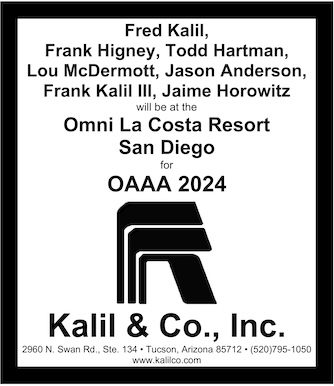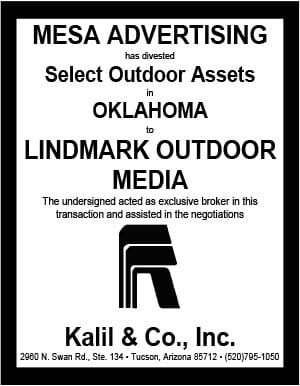
Today out of home leasing and development expert Andy Goodman analyzes right of first refusal language and notice language in an out of home lease. Andy’s comments are in italics following the lease language.
Right of First Refusal: If, during the term of the Lease Agreement (including any extensions or renewals thereof), or within 90 days after termination of this Lease agreement, Lessor shall make or receive an offer to lease, license, convey, grant an easement, sell, or otherwise alienate all or any portion of the Property (an “Offer”), Lessor grants Lessee a right of first refusal (“ROFR”) to enter into a new relationship with Lessor at the same price and on the same terms as contained in the Offer. Lessor shall deliver to lessee (in the manner set forth in paragraph 11 of the Lease Agreement) a copy of the Offer within five (5 ) days of Lessor’s receipt of the same. Lessee shall have thirty (30) days to exercise it ROFT by providing notice to Lessor within the ROFT period. In the event Lessee does not timely exercise it ROFT, the ROFT shall be deemed not exercised; provided, however, if Lessor does not lease, license, convey, grant an easement, sell or otherwise alienate the Property to the purchaser identified in the Offer, or if the terms of the Offer should change prior to closing, the ROFT period shall automatically renew and Lessor shall deliver a copy of the Offer as amended or any new Offer to Lessee to begin the new ROFR period.
It is my experience that this section of the Lease creates the most push back from the property owner. Its my understanding that the property owner believes that during a sale of the property, if the outdoor company has first right of refusal to buy the property, then the property owner must disclose this to potential buyers. This creates a situation for the property owner where potential buyers are hesitant to make their best offer knowing that another bidder can steal the deal by bidding a dollar more. In my opinion the most important portion of this section is protecting the section that restricts the property owner from selling an easement on the property to a competitor or a company that purchases easements.
Notice: Any notice (“Notice”) to Lessor or Lessee described in this Lease Agreement in order to be effective must be in writing and sent certified mail, return receipt requested, or via a nationally recognized Next-Day courier service, and then shall be effective upon the earlier of a) the date that said Notice is delivered and received by a person at the address specified in the Agreement; or, b) the date that is three (3) days after the mailing (postage prepaid) by certified mail, return receipt requested, to such address; provided that in either case Notice shall be delivered to such other address as lessor or Lessee, as the case may be, has previously designated in writing and provided to the other by Notice as set forth herein.
We experience this all the time with email where something ends up in spam or is accidentally deleted. Mail gets lost. Mail doesn’t arrive for weeks or months. When I’m sending documents I use certified registered mail with receipt signoff when I send anything to the State. I do the same when I send documents to a city.
This section protects the landlord and billboard company from having to litigate when notice was given. Notice is not a phone call. Notice is not an email. Notice is in writing, certified registered mail with signoff.
To receive a free morning newsletter with each day’s Billboard insider articles email info@billboardinsider.com with the word “Subscribe” in the title. Our newsletter is free and we don’t sell our subscriber list.
Paid Advertisement

















